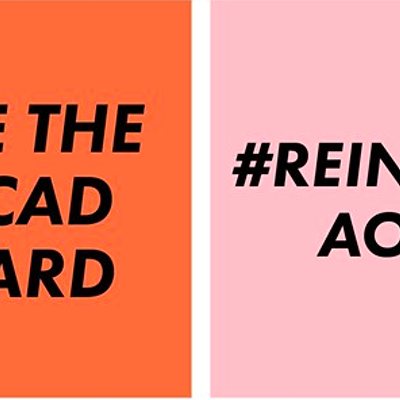--------
After first embracing it last week, Halifax council Tuesday abruptly reversed course and rejected a service-based taxation scheme for transit funding, opting instead to use an assessment-based general tax rate, at least for a year. Then, they held off on actually implementing that decision, saying they’ll come back to it next week.
This is good. Council is discovering what I’ve been saying all along: there is no such thing as a value-neutral taxation system, and all tax schemes are politicized.
Every city in Canada is funded primarily through assessment-based property taxes, but a collection of south end business people (that is, the pro-development group Citizens for Halifax) pushed forward the notion that Halifax can lead the nation into a glorious new system of service-based taxes. A lot of politicians and bureaucrats drank the Kool-Aid.
On some superficial surface level, the idea that people's taxes should reflect the services they get seems to make sense. Of course, first you have to set aside any idea that taxation should serve social justice purposes, and you have reduce people's relationship to their government as merely one of atomized consumers buying services, ignoring any of the broader social and political roles of government. (More on this below.)
Then, it's just a matter of figuring out the costs of the services provided, and allotting them appropriately to individual consumers. The misnamed "tax reform" committee spent two years meeting, to do exactly that. They poured through city staff-produced reports on each service provided, from garbage collection to sidewalk construction to snow plowing to, yes, transit. They parsed the price of the various contracts, collective bargaining agreements, fuel and so forth. And then, they created various geographic district boundaries so they could figure out the cost of delivery of each service to each district. Oh, and then they created various scenarios for any number of assumptions that might underlie savings and extra costs depending on the type of property being serviced. All of this resulted in thousands of pages of spreadsheets, supposedly exactly detailing the "true" cost of each service to each individual citizen, I mean consumer.
But the very fact of the complexity of the new system shows how politicized it is. Each decision made along the way involves some sort of value judgement---a judgement that every person in the city would call differently.
For example, as proposed in the new transit tax, three condo units arranged vertically in a three-storey building would have their taxes cut in half as an award for increased density, but three condos arranged horizontally along the street with the same building footprint would be charged full price.
Again, on some surface level, it makes apparent sense to have a density bonus---I certainly like the sound of it. But actually creating and implementing such a bonus involves all sorts of judgement calls. Apartments in a building a kilometre away from a bus stop would be given a bonus, while the bungalow in front of the bus stop would not. And the density bonus is 50 percent---not 48 percent, or 52 percent, but 50 percent, exactly, a number apparently pulled out of thin air.
Similarly, for the “local area rate” charged for access to transit, houses in Sackville that are serviced by one bus four times a day would be charged the same as a house near the Portland Hills transit station, which has maybe 50 bus options. There would be no consideration for the level of service---simply having access to the service means you pay full price. (Think of going to the grocery store and paying exactly the same amount for a litre and a two-litre carton of milk.)
As council started unpacking the proposal they discovered that there were dozens of such judgement calls. Their first reaction was to start horse-trading: I’ll give you a density bonus for mobile homes if you increase the distance from a bus stop to a taxable property from one kilometre to two, and so forth. Eventually it dawned on them that the system they were creating was far less equitable and objective than the existing assessment-based system, and so they ditched “reform,” at least for the time being.
Hopefully, the exercise with transit taxes will show the utter futility of the larger “tax reform” movement, which will come before council in the next couple of months.
Like it or not, assessment-based taxation is a wealth tax. It’s not a perfect indicator of wealth---people can shove their millions into the TSX and live in a north end hovel, if they want---but it’s the only wealth tax we have, and should be kept for that reason alone.
Are there problems with it? Sure. The proverbial 90-year-old widow finds that her pension doesn’t cover the tax bill, and the over-heated real estate market drives up the taxes for the working family.
But the fact of increased property values provides both with increased options. Thanks to the high-valued property, the widow can get a reverse mortgage to live out her days without worry. The working family can refinance, if necessary, and use the increased value to fund a child's college education. These pluses more than outweigh the minus of a higher tax bill.
But everybody wants their property values to go up, and for good reason: their homes become a body of wealth that gives them more financial options down the road. You wouldn’t know it from listening to south enders whining about their tax bills, but having your property values skyrocket is a good thing. Really!
As the argument goes, those south enders get the same services as the people in north Dartmouth, so they should pay the same tax. That's absurd on its face---if the houses are simply interchangeable, I'll make a deal with south enders: Let's trade; I'll take your house and pay the higher taxes, and you can take my house in Dartmouth and pay lower taxes.
Obviously no one will take me up on the offer, because the houses in the south end are more valuable. There are lots of reasons why those houses are more valuable, and many of those reasons are connected to how government works. As Gloria McCluskey correctly points out, government doesn't just merely provide services, but is also tied up in all sorts of other decisions that affect property values.
Take, for example, zoning laws. For 250 years city officials have protected the south end and Northwest Arm neighbourhoods, and have disallowed industrial operations in the area. Compare that situation to, again, north Dartmouth, where houses are wedged between commercial and industrial operations, including homes literally directly below the bellowing smokestacks of Tufts Cove. Service-based taxation proponents would have us believe that the historical, and ongoing, political decisions that have given and continue to give value to one area and while taking it away from another don't matter, and both neighbourhoods should be taxed the exact same dollar amount.
There are thousands of other examples, from the siting of schools and rehab facilities, the placement of highways, differing building codes, protection (or not) of lakes, building a sewer plant in one neighbourhood and not another, and on and on---all are government decisions that affect property values, and that give the lie to the simplistic notion that government is a neutral provider of services to citizens (and for that matter, that citizens are merely neutral consumers of services who don't affect the political process).
Besides being patently unfair, service-based taxation also atomizes up: we are no longer a collective community that works together through government, but rather a bunch of individuals with a one-on-one relationship with government, all of us just happening to live near each other, but otherwise with no connections, no obligations, no shared concerns with each other. That's a recipe for breaking a society.
Assessment-based property taxation isn't a perfect system--- there can be no perfect tax system--- but property is still the primary way people express themselves in a community sense, within a municipality Not every rich person lives in a expensive home, and lots of people are house rich despite having relatively limited incomes. But, as I said above, being house rich matters---it's a form of personal wealth. And that wealth comes from living in a community, in a city, that has structured itself in such a way that some properties are worth more than others. As those values are made possible to a significant degree by the actions of government, it makes sense to fund government through taxing those values.
But, unfortunately, our existing tax system isn't as simple as an assessment based system. That's because as property values, and therefore assessments, were going through the roof, politicians began capping the taxable amount for neighbourhoods. Essentially, if live in such a neighbourhood (I do), your tax bill will only go up at the rate of inflation, until the house is sold or you do a major renovation on it, and at such time it's re-assessed and taxed at the current assessed value.
This is horrible policy. It creates all sorts of inequities, especially for first-time home buyers. And, if extended, the logic of caps leads us to a California-style system that bankrupts local governments.
I understand that politicians want to do something about rapidly rising tax bills, but there are other options. Obviously, they can reduce the tax rate, so total tax collections keep on par with inflation, and no more. Another strategy, and the one I prefer, is to keep the tax rate the same and government receipts at the rate of inflation; the extra revenue that comes in over and beyond the inflation rate can be plowed back into a primary residence exemption, say, on the first $100,000 of assessed value. (If your housed is assessed at $220,000, you pay a tax based on $120,000; properties assessed under $100,000 wouldn't be taxed at all.) I don't know if the $100,000 figure works--I'm just throwing it out there.
(Very possibly, however, property assessments will start declining with a crashing housing market, and if so that discussion will be moot.)
The last point that often gets missed from fair taxation discussions is taxation of apartments. The owners of apartments are obviously in it for commercial reasons, and expenses related to the apartment, property taxes included, are written off as business expenses. Nothing wrong with that, of course. But property taxes are in effect passed on to tenants in the form of higher rents. The tenants, not the owner, are paying for government services to a business, and yet receive none of the equity benefits that homeowners or condo owners receive.
This creates a regressive tax situation for apartment dwellers. A fair taxation system would include a renters' rebate, a cheque delivered each year directly from the government to the renter, to even out that inequity.
How much should that renters' rebate cheque be? I don't know. That's not something that can be calculated out; in the end, the size of a renters' rebate will be a political decision, based on competing value judgements.
All tax issues are value judgements.












